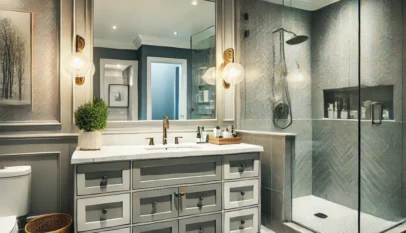
Many buyers are interested in finding a house for sale in Mississauga due to its diverse neighborhoods and strong local economy. The city offers a variety of housing options, from modern condos to spacious family homes, catering to different lifestyles and budgets.
A house for sale in Mississauga typically provides access to excellent schools, convenient transit options, and proximity to major employment hubs. This makes it an attractive choice for families, professionals, and investors alike.
Understanding the current market conditions and neighborhood features can help buyers make well-informed decisions. Exploring the available homes thoroughly ensures they find a property that meets both their needs and long-term goals.
Mississauga Real Estate Market Overview
Mississauga’s housing market shows dynamic shifts influenced by demand and urban development. Homebuyers face a diverse range of options and challenges, including price variations and neighborhood preferences.
Current Housing Trends
The Mississauga real estate market is marked by steady demand, particularly for detached and semi-detached homes. New construction projects focus on townhouses and condominiums to accommodate growing population needs.
Inventory levels remain moderate, causing a competitive environment for buyers. Interest rates and economic conditions continue to affect buyer confidence and purchasing power. Investors show increased interest due to Mississauga’s accessibility to Toronto and infrastructure improvements.
Popular Neighborhoods
Several neighborhoods in Mississauga are attracting buyers due to amenities and location. Port Credit offers waterfront living and strong community appeal. Erin Mills is favored for its family-friendly atmosphere and schools.
Cooksville provides good transit connections and proximity to downtown Mississauga. Meanwhile, Clarkson is growing with affordable housing and access to green spaces. Each neighborhood appeals to different buyer priorities including lifestyle, commute times, and investment potential.
Average Home Prices
As of mid-2025, the average price for a detached home in Mississauga is around $1.3 million. Semi-detached homes average near $900,000, while townhouses and condos typically range between $600,000 and $750,000.
Price variations depend heavily on neighborhood and property condition. Areas like Port Credit command premiums above the city average due to location and demand. Pricing trends indicate moderate year-over-year increases, reflecting balanced market conditions.
How To Buy A House For Sale At Mississauga
House For Sale At Mississauga requires careful planning, especially regarding your finances and local market conditions. Understanding mortgage options, collaborating with experienced agents, and preparing for open houses or virtual tours are essential steps.
Financing And Mortgage Options
Buyers should start by assessing their credit score and savings to determine mortgage eligibility. Mississauga offers a variety of mortgage types, including fixed-rate, variable-rate, and hybrid loans, each with different terms and interest rates.
Pre-approval is vital; it confirms budget limits and strengthens offers. Many lenders require a down payment of at least 5%, but larger amounts often reduce monthly payments.
Government incentives, such as the First-Time Home Buyer Incentive, might be available. Buyers should compare rates from multiple banks and credit unions before selecting a mortgage.
Working With Local Real Estate Agents
Hiring a local agent with knowledge of Mississauga’s neighborhoods can save time and provide access to off-market listings. Agents understand pricing trends and can negotiate better deals.
Buyers should ask agents about their recent sales and client reviews before committing. An experienced agent will guide through paperwork, inspections, and closing procedures.
Clear communication is important. Buyers should express their budget, preferred locations, and must-have features to ensure effective assistance.
Open House And Virtual Tour Tips
For on-site visits, buyers should check for property condition, layout flow, and potential repair needs. Bringing a checklist to note observations helps compare different homes accurately.
In virtual tours, focus on image quality and room dimensions. Buyers should ask agents for additional photos or live walkthroughs if details are unclear.
Scheduling visits during daylight improves visibility. Both types of tours require questions on neighborhood amenities, recent renovations, and utility costs to make informed decisions.
ADHD Help Online: Effective Strategies and Resources for Managing Symptoms
Many people with ADHD seek help online because it offers accessible, flexible support with…








